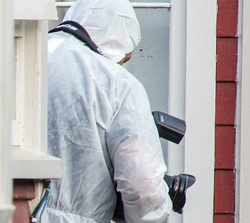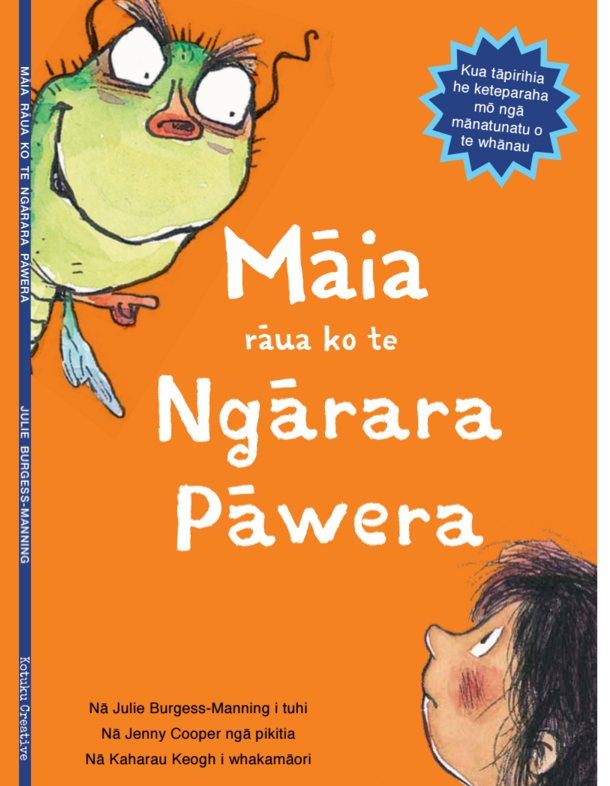For ECE and parents outside of the Canterbury region books are available for sale via our website.
|
With thanks again to New Zealand Red Cross nearly 10 000 Worry Bug books went into Canterbury Early Childhood Centres this week and to celebrate we had a bug stomping at Kidsfirst Sunbeam Kindy in St Albans, Christchurch this morning. The children patiently watched the sand sculpture of the Worry Bug take shape in their sand pit. Julie Burgess-Manning read the children 'Maia and the Worry Bug' and then the children leaped at the chance to stomp the Worry Bug. The Worry Bug Project was initially designed for junior primary children but due to demand NZ Red Cross funded the books for all Canterbury four year olds, as well as the translation of 'Maia and the Worry Bug' into Te Reo Maori.
For ECE and parents outside of the Canterbury region books are available for sale via our website.
0 Comments
 This week our street has been filled with police cars, officers and forensic teams as a few houses away from ours is a crime scene. This certainly falls into the unforeseen category of life events! The children are understandably concerned and confused. They’re also intrigued and a little bit excited. As adults we know life can be unpredictable. When the unforeseen happens we call on our life experience and support networks to find a way through our trauma. It’s also our job to provide support and share our wisdom and experience with the children in our care. When a crime happens in When a crime happens in your neighbourhood there are inevitably going to be questions and worries from children. Some children are open about their concerns, their distress is clear and parents can be available with hugs, chats and lingering bedtimes. Other children aren’t so obvious in their need for extra support. Their behaviour may change subtly, but it isn’t always easy to spot. You may notice the following behaviours: * Confrontational behaviour towards you or siblings * Reluctance to go to bed, leave the house or be apart from you * Refusal to follow requests that would normally not be an issue * A drop or rise in energy and or noise levels * Inability to concentrate Parents are experts on their own children and will usually know what works well to calm them but here are some tips from family therapist and registered psychologist Julie Burgess-Manning to help in unusual circumstances: 7 Tips to Help Kids with Anxiety in Unusual Circumstances 1 It’s important to retain routines; get up at the same time, go to bed at the same time, keep mealtimes, school routines, after school activities the same. 2 Turn media off, repetition of disturbing scenes adds to anxiety. 3 Provide a calm and loving response; keep your adult worries away from children. If you are particularly upset: don’t talk about it with your children, get support from other adults you trust. 4 Keep normal disciplinary boundaries. If kids are pushing these, it is important that they know their parents are still in charge - the world is unpredictable enough without these changing. 5 Give reassurance but don’t overdo it. Too much reassurance means there is something to be worried about! 6 Creating narratives to explain what happened can be useful for younger children. 7 Let them talk about it, but don’t let it take over, use play to get their minds off it. Do the things that you and your children enjoy – distraction is a wonderful thing! Photo Credit: Iain McGregor 'The Press' Some days when I was teaching full-time with my own class it felt like the academic side of schooling was a bonus when the real work lay in the emotional and social well-being of these young humans I was entrusted with for 6 hours a day. I had an inspiring lecturer at Teacher’s College that pressed upon us the importance of making sure we connected with each member of our class, every day. This sounds like a small and easy thing to do but when you multiply those small moments by 30 it requires a committed and conscious effort.
Some days I didn’t want to. Some days I forgot an important piece of work, or missed my bus or had a disagreement with my flatmate, and because this was London in the early 2000s, sometimes I was simply hung over. I do wonder how hard it must be to make these little daily connections in the modern learning environments. To be honest, I wonder how easy it is to even remember 120 children’s names. An article today on Stuff states that even more teachers are expected to also be social workers. I don’t think this is a new thing. Many teachers are called to their vocation of teaching because they are people that care very deeply about the welfare of children. However, what we are seeing in Christchurch is unexpected behaviour from children, behaviour that looks a lot like anxiety and post-traumatic stress. The situation in Christchurch is unique for several reasons. Generally, when you are teaching children who are anxious or stressed your own life isn’t reflected in the struggles of the child, however teachers in Christchurch are able to empathise acutely with many of the aspects of living in a post-disaster city that the children are. This adds further weight to the argument that further funding and help is necessary to support our hard working school staff. Further to this many school staff are also managing mergers, new builds, hugely changed rolls and dramatically different teaching expectations and environments. Yet every day, they return to their classrooms, and make every effort to connect with the children, reinvesting their time, energy, knowledge and hearts. Teachers are the overlooked heroes of the rebuild of Christchurch city, and should be honoured as such. ‘Teachers affect eternity; no one can tell where their influence stops.’ Henry Brooks Adams _Read the full Stuff article here Hot off the press and fresh off the boat!!
Māia rāua ko te Ngārara Pāwera; the Te reo version of Maia and the Worry Bug. Written by Julie Burgess-Manning, illustrated by Jenny Cooper and translated by Kaharau Keogh. |
AuthorWe all worry and feel anxiety at times in our lives. Anxiety can impact on children and their families in many ways. The Worry Bug Project seeks to support parents and teachers to recognise and address mild to moderate anxiety. Archives
October 2019
Categories |

 RSS Feed
RSS Feed